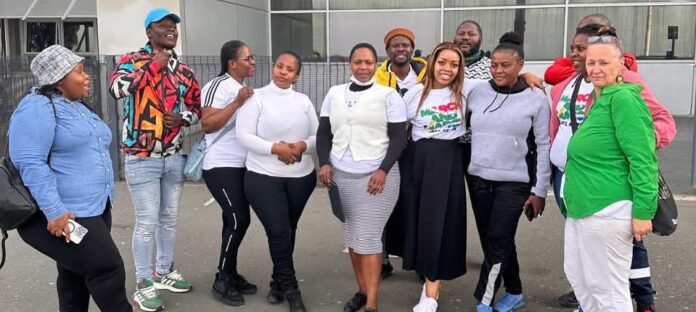The South African Human Rights Commission (SAHRC) has dragged the March and March Movement and Operation Dudula to the Durban High Court to interdict them from barring foreign nationals and others who fail to produce their identity documents from accessing public hospitals.
The commission has also cited, amongst others, the MEC for Health in KwaZulu-Natal, Nomagugu Simelane-Mngadi (formerly Simelane-Zulu), the provincial police commissioner, Lt General Nhlanhla Mkhwanazi, the Minister of Health, Dr Aaron Motsoaledi and the Minister of Home Affairs, Dr Leon Schreiber, as respondents in the case.
In the main affidavit filed by Chris Nilsen, the chairperson of the commission, he alleged that the movements, which he described as vigilantes groups, are even stopping valid asylum and permanent residency permit holders on the basis that they were not born in South Africa.
The matter will be held on Friday this week in KwaZulu-Natal on an urgent basis as the commission claims that any delay would cause harm to the people who are refused access to the public facilities.
Nilsen gave a detailed report of some refugees from DR Congo with valid immigration documents who were denied access to the Addington Hospital along the Durban beachfront on the basis that the facility is only available to South Africans.
Only official authority should demand identification
He asked the court to declare that only an immigration officer or a police officer be allowed to demand identity documents. In the same court papers, Nilsen cited the Chief Executive Officer of the hospital as he alleged that it appears that the conduct of the staff of the hospital and security guards suggests that they are working with the two groups.
The police top brass were cited because Nilsen alleged that the nearby Point Road police did not act when the conduct of the groups was brought to their attention.
Furthermore, the commission wants the court to compel the SAPS to ensure that the final order barring the movements from blocking foreign nationals is strictly enforced at all times.
In the end, the commission wants the court to declare that any person within the borders of South Africa, either illegally or legally so, are entitled to health services at any time they need it.



